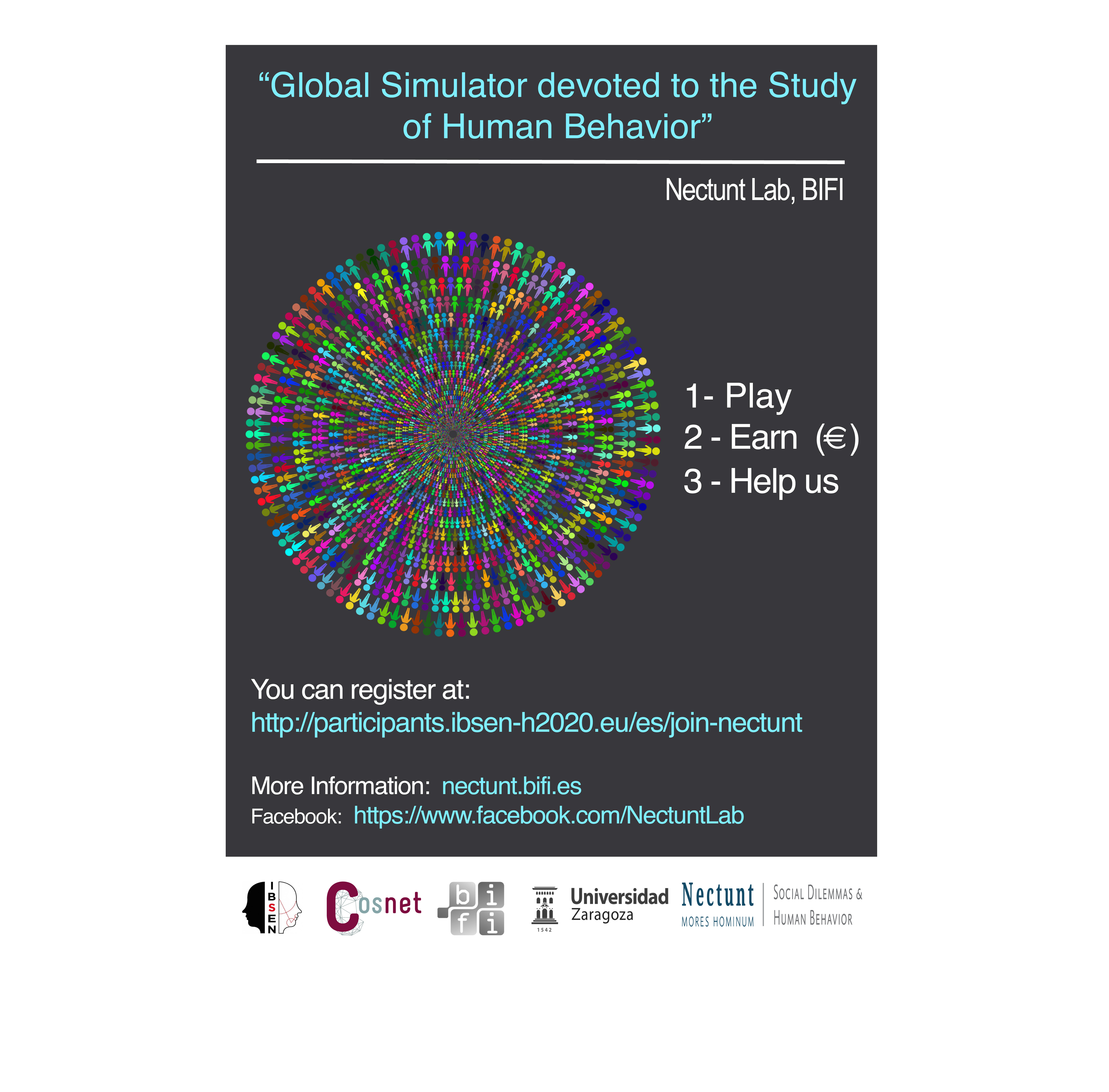Research Projects at Cosnet
Beyond The Edge: Higher-Order Networks and Dynamics Knowledge At the Tip of Your Fingers: Clinical Knowledge for Humanity Complexity Science for Sustainable and Healthy Nutrition Bridging the Gap: from Individual Behavior to the Socio-technical Man Distributed Global Financial Systems for Society Dynamics and Structure of Complex Systems Foundational Research on Multilevel Complex Networks and Systems Mathematical Framework for Multiplex Networks Structure and Dynamics of Natural and Manmade Complex Systems Systems Biology of Mycobacterium tuberculosis Tackling Complexity in Physical and Biological Systems: A Computational Approach Thematic Network: Dynamics and Synchronization in NetworksBridging the Gap: from Individual Behavior to the Socio-technical Man (IBSEN)
European Commission. H2020 FET Open, Project number 662725
2015-2018
Summary of the project: Developing models of real-world societal scenarios and systems is a key topic in the research agenda of social sciences, but is hindered by the lack of controlled experimentation with large groups of people. IBSEN will provide a breakthrough by building a repertoire of human behavior in large (1000+ persons) structured groups using controlled experiments. To that end, we will develop a novel setup for large groups of people that will provide an experimental protocol, the necessary software, and analytical tools to allow us to deal with thousands of people at the same time. We will apply our setup to specific research questions, focusing on novel phenomenology that may arise in large systems as compared to typical smaller ones, to find the rules that govern human behavior in those cases, including the influence of social context and individual identity on them. We will assess our approach by building a model of human interaction in groups based on the behavioral rules we have found. The project requires a high-degree of interdisciplinarity; accordingly, the team consists of physicists, economists, social psychologists, and computer scientists. On the other hand, this is a high-risk project, as the experimental design may prove unfeasible for really large systems and extracting meaningful data from the participants’ actions may not be possible. Notwithstanding, encouraging results in some pilot studies run by partners underpin the scientific feasibility of the concept and approach. If successful, researchers will be able to build on our findings to develop a human behavior simulator, a technology providing a basis for socio-economic simulations that would radically change many fields, from robotics to economics, with technological and societal impacts, including policy-making in socially pressing issues. We will thus lay the foundations to kick start a new way of doing social science for the problems arising in a technologically highly connected society.
2015-2018
 The Experimental Lab: Nectunt Lab is devoted to the study of cooperative behavior in diverse scientific fields, including the biological and social sciences. Methodologically, we make use of evolutionary game theory and computer simulations to build models that are informed by our findings in controlled experiments, both on-site and online, where we study how humans behave in a number of strategic situations and scenarios. Eventually, a better understanding of humans’ behavioral responses could help developing the largest simulator of human behavior up to date, with the ultimate goal of answering questions such as: What are the mechanisms and real motivations that promote the emergence and evolution of cooperation in humans? How individuals behave in different contexts? How financial bubbles are formed? How does the group size influence collective behavior? Further info can be found at the Nectunt Lab webpage.
The Experimental Lab: Nectunt Lab is devoted to the study of cooperative behavior in diverse scientific fields, including the biological and social sciences. Methodologically, we make use of evolutionary game theory and computer simulations to build models that are informed by our findings in controlled experiments, both on-site and online, where we study how humans behave in a number of strategic situations and scenarios. Eventually, a better understanding of humans’ behavioral responses could help developing the largest simulator of human behavior up to date, with the ultimate goal of answering questions such as: What are the mechanisms and real motivations that promote the emergence and evolution of cooperation in humans? How individuals behave in different contexts? How financial bubbles are formed? How does the group size influence collective behavior? Further info can be found at the Nectunt Lab webpage.

